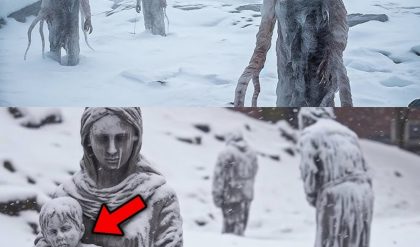Exploring the “Soran Hypothesis”: Was There an Advanced Civilization Before Humanity?

The video delves into a fascinating and controversial theory known as the “Soran Hypothesis,” which posits that an advanced civilization may have existed on Earth long before humans appeared. This hypothesis challenges the conventional understanding of Earth’s history by raising a thought-provoking question: Are we truly the first advanced civilization to have existed on this planet?
The Soran Hypothesis: Unveiling the Evidence
The “Soran Hypothesis” is supported by several intriguing pieces of evidence that suggest the possibility of a pre-human advanced civilization. The video outlines some of the most compelling points:
- Sudden Changes in Earth’s Atmosphere and Environment: Approximately 55.5 million years ago, there was a sudden and dramatic shift in the carbon isotope ratios in the atmosphere. This period, known as the Paleocene-Eocene Thermal Maximum (PETM), was marked by a rapid increase in global temperatures, rising sea levels, and a significant drop in oceanic oxygen levels. These changes had a profound impact on life on Earth, leading to the mass extinction of many species, although not of the reptiles.
- Mass Extinction Events: The PETM is also noted for a mass extinction event that wiped out numerous species. However, reptiles, particularly lizards, managed to survive, raising questions about what factors allowed them to persist while other species perished.
- Ancient Artificial Structures: The existence of ancient structures such as the pyramids and the Nazca Lines has long puzzled historians and archaeologists. These monumental achievements suggest the possibility of advanced engineering and astronomical knowledge in ancient times, which some proponents of the Soran Hypothesis argue could be remnants of a lost civilization.
Challenges in Discovering a Pre-Human Civilization

Despite the intriguing evidence, the video explains why it is difficult to find definitive proof of a pre-human advanced civilization. Several factors contribute to the challenges:
- Geological Processes: Earth’s surface is constantly being reshaped by geological processes such as volcanic eruptions, earthquakes, and erosion. These processes can obliterate traces of ancient civilizations, making it difficult to find concrete evidence of their existence.
- Fossilization: Fossils are only formed under very specific conditions, and only a small fraction of the species that ever lived on Earth have been preserved in this way. This limitation makes it unlikely that we would find fossilized remains of a technologically advanced species that lived millions of years ago.
- Non-Fossil Fuel-Based Civilizations: If a pre-human civilization did not rely on fossil fuels or other materials that leave a long-lasting mark in the geological record, their existence could go undetected. Without the telltale signs of industrial activity, such as carbon emissions or widespread mining, finding evidence of such a civilization would be exceedingly difficult.
The Big Question: Could We Ever Find Proof?
The video concludes by posing an open-ended question: Could we ever find evidence of an advanced civilization that existed before humans? The answer remains uncertain. While the possibility exists, the challenges in uncovering such evidence are significant. Continued research and exploration may one day provide answers, but for now, the “Soran Hypothesis” remains a captivating and speculative idea that invites us to reconsider our understanding of Earth’s history.
The video encourages viewers to keep an open mind and to appreciate the mysteries that still surround our planet’s past. As we continue to explore and learn more about Earth’s history, we may one day discover whether we are truly the first advanced civilization to call this planet home, or if we are simply the latest in a long line of intelligent beings that have risen and fallen over the eons.





